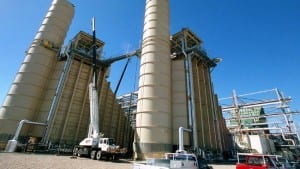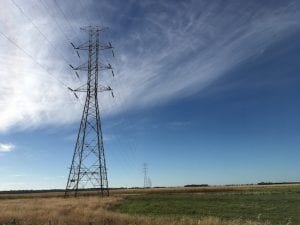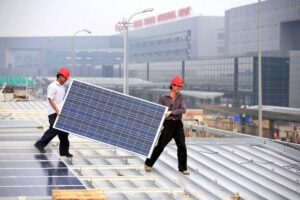Network operators have warned that the proposed introduction of emissions reductions into the National Electricity Objective of Australia’s main grid may be useless for up to a decade unless regulators also act immediately to change the market rules.
“There is no time to waste,” says Renate Vogt, the head of regulation for CitiPower and Powercor, which operate networks in and around Melbourne and in regional Victoria.
The concern is that because network investments are approved on a five year timeline, unless moves are made now by the Australian Energy Market Commission to update the rules, the emissions objective will have no practical effect until the regulated investment cycle that begins in 2032, nearly a decade away.
“Our networks operate on a five-year planning cycle and we can’t wait for rules to be changed when developing our proposals and making investment decisions,” Vogt says.
“We are already well progressed on developing our 2026-2031 investment plans. We know this is a critical period under the energy transition if we’re going to meet the ambitious emissions reduction targets for 2030 and beyond.
“If these regulatory changes aren’t made, there is a risk our networks will not be able to invest in the projects and programs that we know will deliver the environmental benefits our communities want and expect.”
Vogt says that any delays could have an impact on investments in upgrades designed to accommodate more rooftop solar, battery storage, electric vehicles, and virtual power plants. Without a change to the rules, the Australian Energy Regulator might ignore emissions reduction as a benefit.
“We have got to get cracking to make the investment we need,” Vogt told RenewEconomy. “It would be such a missed opportunity (if the rules were not changed quick enough).”
The introduction of an emissions reduction objective was finally approved by federal and state ministers last year, more than two decades after it was mysteriously dropped from the creation of the National Electricity Market in the late 1990s.
The impact of that is seen clearly on network decisions, such as the regulatory requirements for networks to focus us on “economic” rather than environmental benefits, a bias that nearly forced Transgrid into investing in diesel generators rather than a new innovative clean energy storage solution for Broken Hill.
See: Regulatory madness promotes dirty diesel over renewable mini grid at Broken Hill
The fossil fuel lobby is still opposed, and the Australian Energy Council – in its latest attempt at undermining any coherent national emissions reduction policy – is arguing that the new rule be made voluntary rather than mandatory.
The AEC represents utilities such as AGL, Origin, EnergyAustralia, Engie, Alinta, the government owned Snowy Hydro and more than a dozen others who claim they take climate change and the energy transition seriously.
CitiPower and PowerCo say any delays will affect their ability to incorporate investments in programs that could encourage new technologies such as electric vehicles.
“There is currently no reference to emissions reductions within the national energy rules,” the submission says.
“Therefore, without corresponding amendments to national energy rules to mirror the new emissions reduction objectives, there will be a discord between the two, with the rules having greater influence over the scope of the AERs decision powers.”
The networks says that as regulated businesses, CitiPower and Powercor’s investment plans are reviewed and approved by the Australian Energy Regulator every five years and are assessed under the National Electricity Rules (NER), which are made under the National Electricity Law (NEL).
“Under the current rules, the AER reviews distribution network expenditure based on economic efficiency, looking at price, quality, reliability, and security of supply,” it notes.
“If the Bill is passed and the Rules are subsequently changed, the regulator will need to also consider emissions reductions objectives.”
Research from CitiPower and Powercor found residential customers were willing to pay an additional $9.00 annually on their electricity bills for better environmental outcomes. They say that environmental outcomes rankeas the second highest priority for network investment after bushfire safety.










